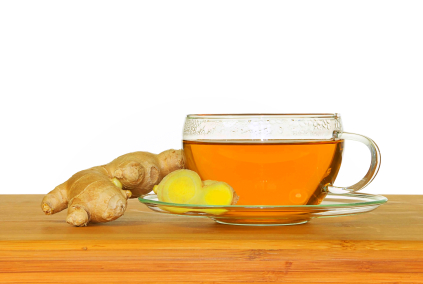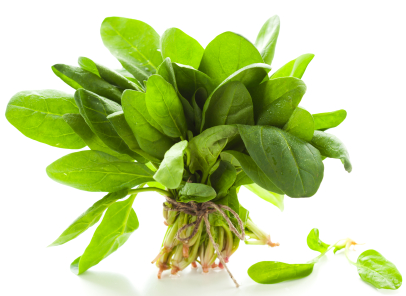Natural Healthy Remedies for Pregnancy Peeves

Most women recognise that during their pregnancy they need to maintain a healthy diet and lifestyle.
For nine months they will share their body with a developing baby and so ensuring that they get the right nutrients is important in giving their little one the very best start in life. What they might not realise, however, is that a good diet in general (and certain food types in particular) can also relieve some of the more unpleasant conditions that occur during pregnancy too.
Hormonal changes, unstable blood sugar levels and anxiety are some of the reasons that you could wind up with a bunch of symptoms that can really put a downer on your pregnancy. Although it is always recommended that you should talk to a qualified midwife or healthcare professional before drastically changing your diet taking supplements during pregnancy, these are all natural products and should benefit your health in addition to easing your symptoms.
Here are some of the most common pregnancy related ailments and the ways that you can treat them with a healthy diet.
Morning sickness
With as many as nine out of ten women in Australia suffering from morning sickness in the early stages of pregnancy, this is a very debilitating side effect. The feelings of nausea actual vomiting are thought to be caused by an extreme rise in the pregnancy hormone hGC combined with lower than average blood sugar levels.
 Get back to basics with the ancient Chinese herbal remedy of ginger which is renowned for its anti-sickness properties. Chewing on ginger root or boiling ginger up with water to make tea is probably the best way to take the substance – cookies or crystallized candies are usually full of sugar and deplete the potency of the enzyme within the ginger that helps to ease sickness.
Get back to basics with the ancient Chinese herbal remedy of ginger which is renowned for its anti-sickness properties. Chewing on ginger root or boiling ginger up with water to make tea is probably the best way to take the substance – cookies or crystallized candies are usually full of sugar and deplete the potency of the enzyme within the ginger that helps to ease sickness.
Aside from this, ginger is also a great anti-inflammatory and good at supporting the immune system which means you are less likely to pick up any nasty bugs during pregnancy. The only problem with ginger is that is can affect the body's blood clotting ability if taken regularly for more than 3 weeks. Seek advice from your midwife or healthcare professional if you are unsure.
A protein intake will also help to keep your blood sugar levels stable. Morning sickness is like a vicious circle – you feel sick so you don’t eat but then your blood sugar drops and you feel even worse. Try and keep a little something in your stomach at all times. A protein boost is great for getting your blood sugar back up quickly so try a little cheese, yoghurt or chicken if you can. Protein is essential for growth and development and will benefit both you and baby during pregnancy as your body needs to grow to accommodate him or her.
Tiredness
Tiredness is very common during pregnancy, particularly during the first trimester, when your hormones are running wild, and the third trimester, when baby is bigger and the physical strain begins taking its toll. Once again those pesky blood sugars can also play a part in tiredness so try and keep them stable with a diet rich in complex carbohydrates such as brown rice/pasta, vegetables and beans. Unlike simple carbohydrates such as white bread, pasta and potato, their complex counterparts have a far more intricate molecular structure that takes the body longer to metabolize and in turn providing longer lasting energy rather than irregular highs and lows. Wholegrains also contain more fibre and are great for digestion.
 If you are feeling excessively tired then it may be worth getting checked over for anaemia. This is a common condition during pregnancy and occurs because the body is producing more blood. Iron rich foods such as red meat, eggs and leafy green vegetables like spinach are great for an iron boost but if they don’t give you any relief then see you doctor as you might be prescribed an iron supplement.
If you are feeling excessively tired then it may be worth getting checked over for anaemia. This is a common condition during pregnancy and occurs because the body is producing more blood. Iron rich foods such as red meat, eggs and leafy green vegetables like spinach are great for an iron boost but if they don’t give you any relief then see you doctor as you might be prescribed an iron supplement.
Constipation
Constipation occurs during pregnancy because an increase in the hormone progesterone means that the movement through the bowels becomes slower. As the baby grows the pressure on the lower intestines can also intensify making constipation, and sadly haemorrhoids, more likely too. A key element in the battle against constipation is keeping well hydrated and drinking as much water as possible. This will keep your digestive tract flowing - dehydration can make stools harder to pass. Watery food products such as salads and broths can also help with this but try to avoid diuretic, caffeine fuelled-drinks such as cola or coffee as these will dehydrate you further. Keeping hydrated is also great for concentration and general mood. Dehydration can leave you tired, irritable and unable to focus.
Obviously roughage found in high fibre food such as oats and bran is beneficial but only when you add more water to your diet too. Too much roughage and not enough water will also cause hard, painful stools. In general though a hot, oaty cereal for breakfast is the perfect way to start the day and is also renowned as a calming comfort food too.
Bleeding gums
Progesterone might slow down digestion but it speeds up blood flow to the gums, making them more sensitive and prone to bleeding when brushed. For some women this condition, otherwise known as gingivitis, can escalate to more serious health problems that may even cause premature labour. Because the baby also siphons a lot of it’s mothers vitamins and minerals, you may find that you are suffering from a deficiency that will also affect gum and teeth health. Make sure that you stock up on calcium based products, essential for teeth and bones.
Cherry and grapefruit extracts are also thought to help ease bleeding gums as they are rich in vitamin C which helps to repair damaged tissue.
This article has been written for The Pregnancy Centre by Melissa Hathaway. Melissa is a graduate of nutrition and food sciences and currently works as a writer providing content relating to health, fitness and nutrition. As a mother of two young girls she is keen to promote the importance of a healthy diet before and during pregnancy.
Copyright 2013 - 2020. Demac Resources Pty Ltd. www.thepregnancycentre.com.au